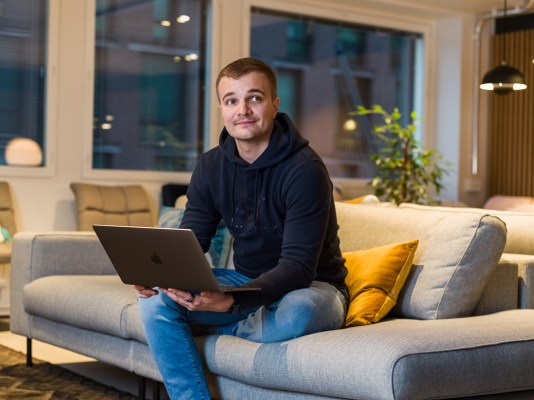
Wolt, the Helsinki-based online ordering and delivery company that initially focused on restaurants but has since expanded to other verticals, has raised $530 million in new funding. The round was led by Iconiq Growth, with participation from Tiger Global, DST, KKR, Prosus, EQT Growth and Coatue.
Previous backers 83North, Highland Europe, Goldman Sachs Growth Equity, EQT Ventures and Vintage Investment Partners also followed on. The new round takes the total amount of financing Wolt has raised to $856 million. Wolt declined to disclose the company’s latest valuation, although we know from the previous D round that the company is one of Europe’s so-called unicorns.
“We operate in an extremely competitive and well-funded industry, and this round allows us to have a long-term mindset when it comes to doubling down on our different markets,” says co-founder and CEO Miki Kuusi in a statement. “Despite the turbulence of 2020, we’ve remained focused on growth, tripling our revenue to a preliminary $330 against a net loss of just $38 million. Compared to the $670 million in new capital that we’ve raised during this year, this puts us into a strong position for investing in our people, technology, and markets when thinking about the next few years ahead”.
Since launching with 10 restaurants in its home city in 2015, five years on Wolt has expanded to 23 countries and 120 cities, mostly in Europe but also including Japan and Israel. More recently, like others in the restaurant delivery space, Wolt has expanded beyond restaurants and takeout food into the grocery and retail sectors. This, says the company, sees it offer anything from cosmetics to pet food and pharmaceuticals on its platform.
“This was mostly a primary raise,” Kuusi tells me when I ask if the new round includes secondary funding (i.e. shareholders that exited to new investors). “We’re not looking to disclose the valuation at this time, but we’ve previously shared that the Series D round that we raised in early 2020 valued the company at above €1 billion,” he adds.
Kuusi says that the latest funding round is based on the belief that local services in the offline world will gradually be brought online by players “that can execute and maintain a great customer experience”. “We started with an exclusive focus on the restaurant, as it’s the biggest local service with an underlying high-frequency use case,” he says. “We quickly learnt that the magical product market fit for bringing the restaurant online was to offer a quick and predictable delivery experience from restaurants that didn’t use to be available for delivery. We do this by handling the complexity of the delivery on the restaurant’s behalf”.
However, this was especially difficult to do efficiently and sustainably in a small and difficult home market in the Nordics. To solve this, Wolt needed to build an “optimization-heavy logistics setup for last-mile delivery” that Kuusi says lets the service operate even in “very small cities with low income disparity, limited population density and high labor costs”.
“This means that we can operate efficiently even with relatively low order volumes, enabling us to grow and expand rapidly with much less financing than some of the other players in the market. We simply had no other choice than to do it this way as we came from such a difficult home market”.
On this foundation, Wolt is expanding into other ordering and local delivery verticals, aiming to be what Kuusi dubs as “the everything app” of goods and services. “Today, Wolt is much more than a restaurant delivery service; you can order groceries, electronics, flowers, clothes and many other things on our platform,” he explains. “We believe that the future of how people buy Nike shoes is a few taps on Wolt and some 30 minutes later you get any pair of shoes brought to your door. This is what we strive to make into a reality with our team at Wolt”. (I’m an Adidas guy myself, steadfastly European.)
Asked what he thinks about all the money being pumped into the dark convenience store model, Kuusi says Wolt is investing into its own dark store operation called Wolt Market. “It’s not surprising to also see a growing amount of financing going into this sector”, he admits. “We’re huge believers in a hybrid model where there will be both offline/online retailers as well as focused online retailers in the mix. Obviously the latter category is only getting started, and we should see a massive amount of growth for the coming years ahead”.



